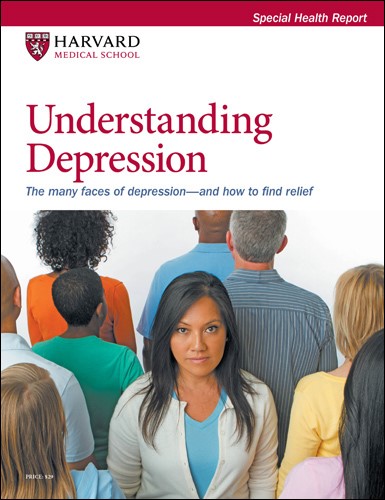Talk therapy for depression may help lower heart disease risk
In the journals
- Reviewed by Howard E. LeWine, MD, Chief Medical Editor, Harvard Health Publishing; Editorial Advisory Board Member, Harvard Health Publishing

People with depression have a higher risk for additional health problems. Does that mean that treating depression might protect these individuals from other chronic conditions? Researchers explored this question by looking at how psychotherapy (talk therapy) may affect a person's risk for cardiovascular disease. In psychotherapy, a person works with a therapist to discuss concerns, identify harmful thought patterns, and help manage negative behaviors and emotions. It's often used as a first-line treatment for depression. In the study, researchers looked at data on 636,955 people who were free of cardiovascular disease, met specific criteria for depression, and completed a course of psychotherapy. Three years later, patients whose depression symptoms improved after therapy were 12% less likely to have experienced a heart attack or stroke than those whose symptoms were unchanged.
The researchers pointed out that improving depression symptoms with therapy does not directly affect cardiovascular disease risk. Instead, they theorized that therapy likely helped people make healthier lifestyle changes, such as adjusting their diet and exercising more, which in turn improved their heart health. The results appeared May 7, 2023, in the European Heart Journal.
Image: © StockRocket/Getty Images
About the Author

Matthew Solan, Executive Editor, Harvard Men's Health Watch
About the Reviewer

Howard E. LeWine, MD, Chief Medical Editor, Harvard Health Publishing; Editorial Advisory Board Member, Harvard Health Publishing
Disclaimer:
As a service to our readers, Harvard Health Publishing provides access to our library of archived content. Please note the date of last review or update on all articles.
No content on this site, regardless of date, should ever be used as a substitute for direct medical advice from your doctor or other qualified clinician.
















